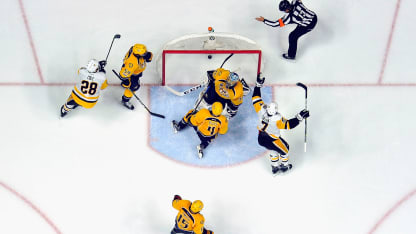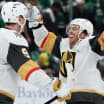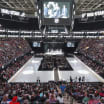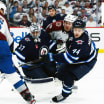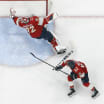"The penalty-killing was solid all night long," Lidster said. "They did a real good job getting in the shot lanes. As we mentioned at the beginning of the series, that would be a key for Pittsburgh to take away the shots from the Nashville point. [Game 6] just exemplified that. They did it at even strength, and they did it particularly well on the penalty kill."
One thing that the Penguins did not do well was win faceoffs. It was something that Lidster had thought might burn them, in Game 6 and throughout the series, noting that they were "playing with fire." The Penguins won 32 percent of their faceoffs in Game 6, going 18-for-57. But they still managed to win.
"Sometimes those things come back to bite you," Lidster said. "It just goes to show you how sometimes things just go your way when you have experienced players that know how to win."
That was what the Penguins had, allowing them to take the series and the Stanley Cup, even without defenseman Kris Letang for all of the postseason, even with using Marc-Andre Fleury and Murray in goal, after Murray was injured in warmups before Pittsburgh's playoff opener.
But they got what they needed, and they did what they needed.
"They got key contributions at the right time," Lidster said. "You look at their defense and it's an unheralded defense without Letang in there, and they were solid. They were solid and they contributed offensively on certain nights, but for the most part they just did their job in the defensive zone. They got the puck up to the Pittsburgh forwards, where the strength of the team is, and as a group they were terrific.
"There were points where they needed to have guys step up, and Game 5 they had six different goal scorers all the way to the line of defensemen, third- and fourth-line players. That's what championship teams are. They're a team. No one guy wins it. They have the best player in the world playing for them, but they have a very, very good supporting cast."
And now, just like last season, they will have their names on the Stanley Cup.
